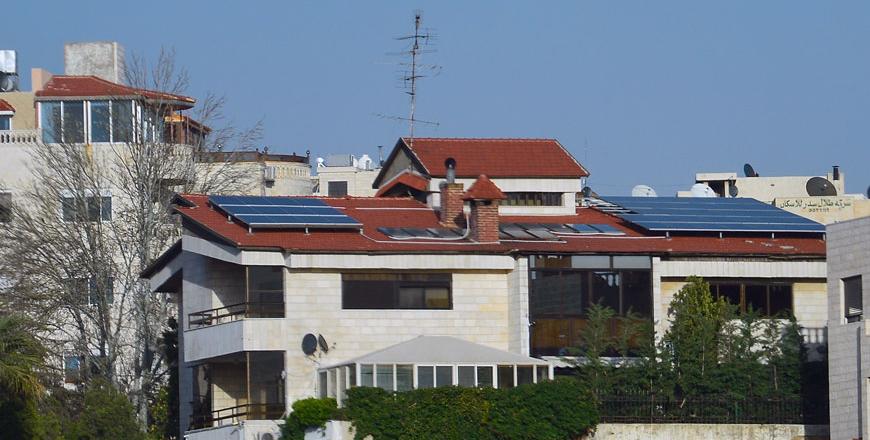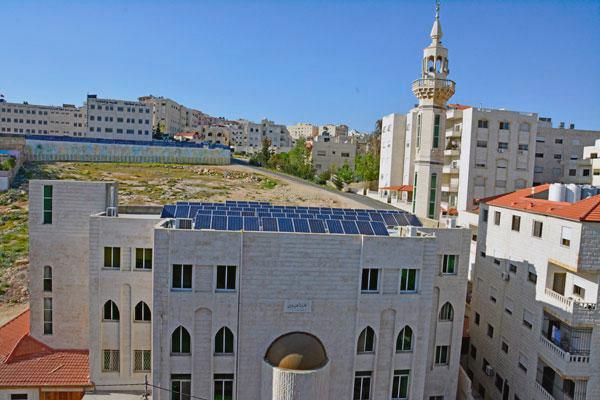You are here
Ministry plans to funnel ‘Fils Al Reef’ fee into solar panels for underprivileged households
By Maram Kayed - Jan 24,2019 - Last updated at Jan 24,2019

In this undated photo, solar panels are seen on the roof of a house in Amman. The Energy Ministry recently announced a decision to use the ‘Fils Al Reef’ fee to fund the installation of solar panels for underprivileged families (Photo by Amjad Ghsoun)
AMMAN — Now that 99.9 per cent of Jordanian households have electricity, the Energy Ministry announced that the “Fils Al Reef” fee will be channelled into installing solar panels for underprivileged families.
According to Ministry of Energy and Mineral Resources Spokesperson Mashhour Abu Eid, Fils Al Reef, which is a fee added to each kilowatt a household uses, was initially introduced with the objective of financing the “installation of power cells in remote areas”.
It was introduced in 1999 as a permanent bond, and by the end of July 2017, it had provided around 525,000 people living in 93,698 houses with electricity, at the cost of JD114 million.
“Now that electricity reaches 99.9 per cent of households, Fils Al Reef has a new mission, which is to help impoverished families with the burden of power bills,” said Abu Eid.
An estimated 7,000 families are expected to benefit from the project in 2019. Families will be able to benefit from the project, if they are on the National Aid Fund’s (NAF) list of underprivileged families, on the condition their electricity usage does not exceed 300 kilowatts per month.
“Families who are on the NAF’s list would not [typically be able to] use more than 300 kilowatts anyway, so I think that is a sensible limit. They do not have the privilege of an air conditioner or electric heater that would require more than that,” said an engineer at the ministry who preferred to remain anonymous.
The installation of solar panels using the Fils Al Reef fee was originally undertaken in 2017, when former minister of energy and mineral resources Saleh Kharabsheh started a project to install solar panels for 26 underprivileged families located far from the power grid.
However, the new project differs from the 2017 project in not only the number of families it includes, but also in the fact that it targets households both inside and outside developed areas, according to a report made available to The Jordan Times.
The decision also comes as Jordan’s investment environment in the field of renewable energy recently ranked third among 103 countries by Bloomberg’s Climatescope 2018 Index.
The county’s contribution of renewable energy to the energy mix is also expected to increase to 20 per cent by 2020.
“This project will not only help families who cannot pay their electricity bills, but it will do it in an environmentally-friendly way,” Abu Eid added.
Related Articles
AMMAN — The Ministry of Energy and Mineral Resources on Wednesday launched the fourth phase of a project installing solar panels in underpri
AMMAN — Seven local companies have begun implementation of the first phase in a project to instal solar cells on the houses of 2,213 familie
AMMAN — A total of 12,000 families are expected to benefit from a National Aid Fund (NAF) project using solar cells to cut down on electrici












